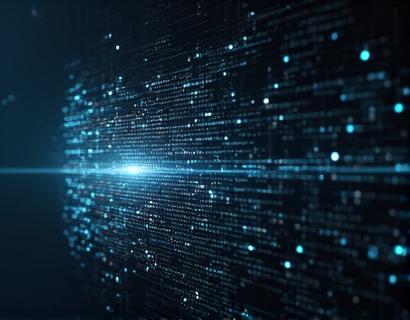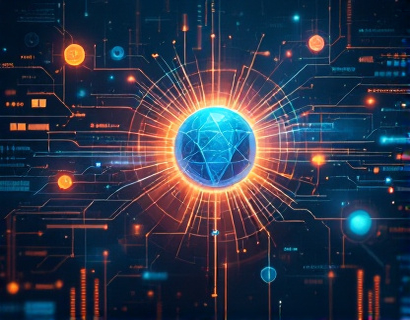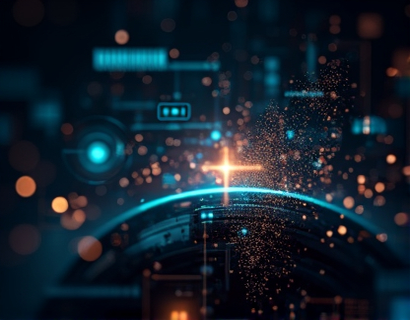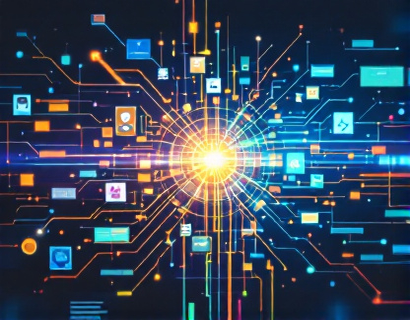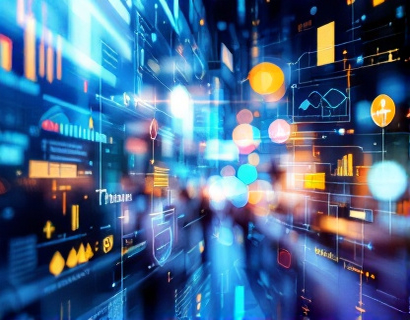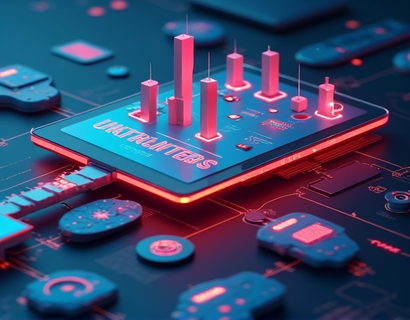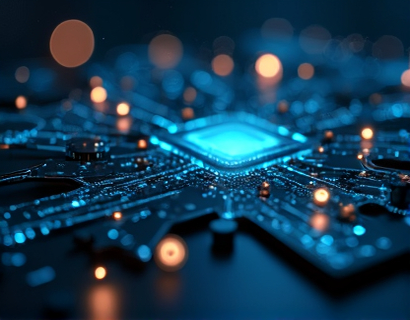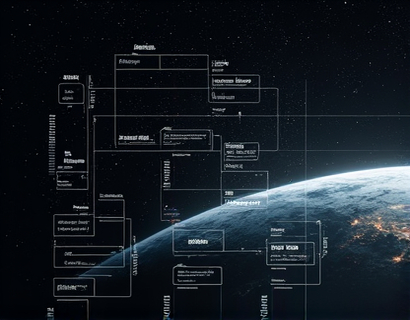AI and Crypto Fusion: Transforming Digital Interactions with Next-Gen Ucosystem Solutions
The intersection of artificial intelligence and cryptocurrency is giving birth to a new era of digital interactions, one that promises unparalleled levels of security, efficiency, and user empowerment. This fusion is not just a technological curiosity but a transformative force reshaping how we engage with digital services and financial systems. As we delve into this exciting frontier, it's essential to understand the key components and innovative applications that are driving this revolution.
Understanding the Basics: AI and Cryptocurrency
To grasp the potential of AI and crypto fusion, it's crucial to first understand the fundamental concepts of both technologies. Artificial intelligence, or AI, refers to the simulation of human intelligence processes by machines, particularly computer systems. These processes include learning, reasoning, and self-correction. AI technologies such as machine learning, natural language processing, and computer vision are rapidly advancing, enabling more sophisticated and intuitive interactions.
Cryptocurrency, on the other hand, is a digital or virtual currency that uses cryptography for security. It operates on a decentralized network, typically a blockchain, which ensures transparency and immutability. Cryptocurrencies like Bitcoin, Ethereum, and numerous altcoins have gained significant traction, offering an alternative to traditional fiat currencies. The combination of AI and cryptocurrency leverages the strengths of both, creating a powerful synergy that enhances various aspects of digital interactions.
Enhanced Security through AI-Driven Cryptography
One of the most significant benefits of AI and crypto fusion is the enhancement of security measures. Traditional cryptographic methods, while robust, can be vulnerable to sophisticated attacks. AI introduces advanced algorithms that can detect and mitigate threats in real-time. Machine learning models can analyze vast amounts of data to identify patterns and anomalies, predicting and preventing potential security breaches. This proactive approach to security is crucial in a landscape where cyber threats are becoming increasingly sophisticated.
For instance, AI can be used to develop more robust encryption methods, ensuring that transactions and data remain secure. Blockchain technology, inherently secure due to its decentralized nature, can be further fortified with AI-driven protocols. These protocols can dynamically adjust security parameters based on real-time threat assessments, providing a more adaptive and resilient security framework. This not only protects users' assets but also builds trust in the digital ecosystem.
Smart Contracts and AI: Automating Complex Transactions
Smart contracts are self-executing contracts with the terms of the agreement directly written into code. They run on blockchain networks and automatically enforce and execute contractual obligations when predefined conditions are met. The integration of AI into smart contracts takes this automation to a new level, enabling more complex and nuanced transactions.
AI can analyze vast datasets to make informed decisions, adapt to changing conditions, and even predict future scenarios. In the context of smart contracts, this means that these digital agreements can handle intricate logic and dynamic variables, making them suitable for a wide range of applications. For example, AI-enhanced smart contracts can manage supply chain logistics, automate insurance claims, and facilitate decentralized finance (DeFi) operations with greater precision and efficiency.
Consider a scenario in DeFi where AI-driven smart contracts can dynamically adjust interest rates based on market conditions, user behavior, and other factors. This level of adaptability ensures that financial products remain fair and responsive to real-world changes, enhancing the overall user experience and trust in the system.
Personalized User Experiences through AI
AI's ability to process and analyze large datasets makes it an ideal tool for creating personalized user experiences. In the context of cryptocurrency and digital services, this means tailored recommendations, intuitive interfaces, and seamless interactions. AI algorithms can learn from user behavior, preferences, and historical data to provide customized suggestions and services.
For instance, a crypto wallet app powered by AI can analyze a user's transaction patterns, investment history, and risk tolerance to offer personalized investment advice and portfolio management tools. This not only enhances the user's experience but also increases the likelihood of better financial decisions. Additionally, AI-driven chatbots and virtual assistants can provide 24/7 support, answering queries and guiding users through complex processes with ease.
Personalization extends to the user interface as well. AI can optimize the design and layout of digital platforms based on user interactions, ensuring that the most frequently used features are easily accessible. This level of customization not only improves usability but also fosters a deeper connection between users and the digital services they engage with.
Decentralized Finance (DeFi) and AI: Revolutionizing Financial Services
Decentralized Finance, or DeFi, is a rapidly growing sector that aims to create financial systems without central intermediaries. AI and cryptocurrency fusion plays a pivotal role in this revolution, offering innovative solutions that enhance accessibility, transparency, and efficiency. AI can analyze market data, predict price movements, and optimize trading strategies, providing users with powerful tools to navigate the complex world of DeFi.
One of the key applications is in lending and borrowing platforms. AI algorithms can assess creditworthiness more accurately by analyzing a broader range of data points, including non-traditional credit history. This democratizes access to credit, making financial services available to a wider audience. Moreover, AI can automate the underwriting process, reducing the time and cost associated with traditional lending methods.
Stablecoin management is another area where AI shines. Stablecoins are designed to maintain a stable value, often pegged to fiat currencies or commodities. AI can monitor and adjust the supply of stablecoins in real-time to maintain price stability, responding to market fluctuations and ensuring the reliability of these digital assets. This level of precision is crucial for the widespread adoption of stablecoins in everyday transactions.
Enhancing Privacy and Anonymity with AI
Privacy and anonymity are paramount concerns in the digital age, especially in the realm of cryptocurrency transactions. AI can help address these concerns by developing advanced privacy-preserving technologies. Zero-knowledge proofs, for example, allow users to verify the validity of transactions without revealing any underlying data. AI can optimize these protocols, making them more efficient and scalable.
Additionally, AI-driven privacy coins can dynamically adjust their anonymity features based on the sensitivity of the transaction. This adaptive approach ensures that users' privacy is protected without compromising the integrity of the blockchain. By combining AI with cryptographic techniques, it's possible to create a more private and secure digital environment, fostering greater trust and adoption.
Challenges and Considerations
While the fusion of AI and cryptocurrency offers immense potential, it also comes with challenges that need to be addressed. One of the primary concerns is the regulatory landscape. As AI and crypto technologies evolve, regulators are grappling with how to oversee these innovations without stifling growth. Balancing innovation with compliance is crucial to ensure that the benefits of AI and crypto fusion can be realized without legal and ethical pitfalls.
Another challenge is the technical complexity involved in integrating AI with blockchain and cryptocurrency systems. Developing robust, scalable, and secure solutions requires expertise in multiple domains. Collaboration between AI researchers, blockchain developers, and financial experts is essential to overcome these technical hurdles.
Furthermore, there is a need for greater public understanding and education. Many users are still unfamiliar with the intricacies of AI and cryptocurrency, which can hinder adoption. Providing clear, accessible information and educational resources is vital to demystify these technologies and encourage broader participation.
Future Prospects: The Next Generation of Digital Interactions
Looking ahead, the fusion of AI and cryptocurrency is poised to transform digital interactions in ways we are only beginning to imagine. As AI continues to advance, we can expect even more sophisticated applications that enhance security, personalization, and efficiency. The integration of AI with emerging technologies like the Internet of Things (IoT) and 5G networks will further expand the scope of Ucosystem solutions.
Imagine a future where your smart home devices, powered by AI, seamlessly interact with your crypto wallet to manage energy costs and automate investments. Or consider a world where AI-driven virtual assistants guide you through complex financial decisions, ensuring that you always make the best choices. These scenarios are not just possibilities but tangible futures that AI and cryptocurrency fusion can make a reality.
The next generation of digital interactions will be characterized by unparalleled levels of security, personalization, and empowerment. By harnessing the power of AI and cryptocurrency, we can create a more inclusive, efficient, and user-friendly digital landscape. As we stand on the cusp of this revolution, the potential for innovation and growth is limitless.



